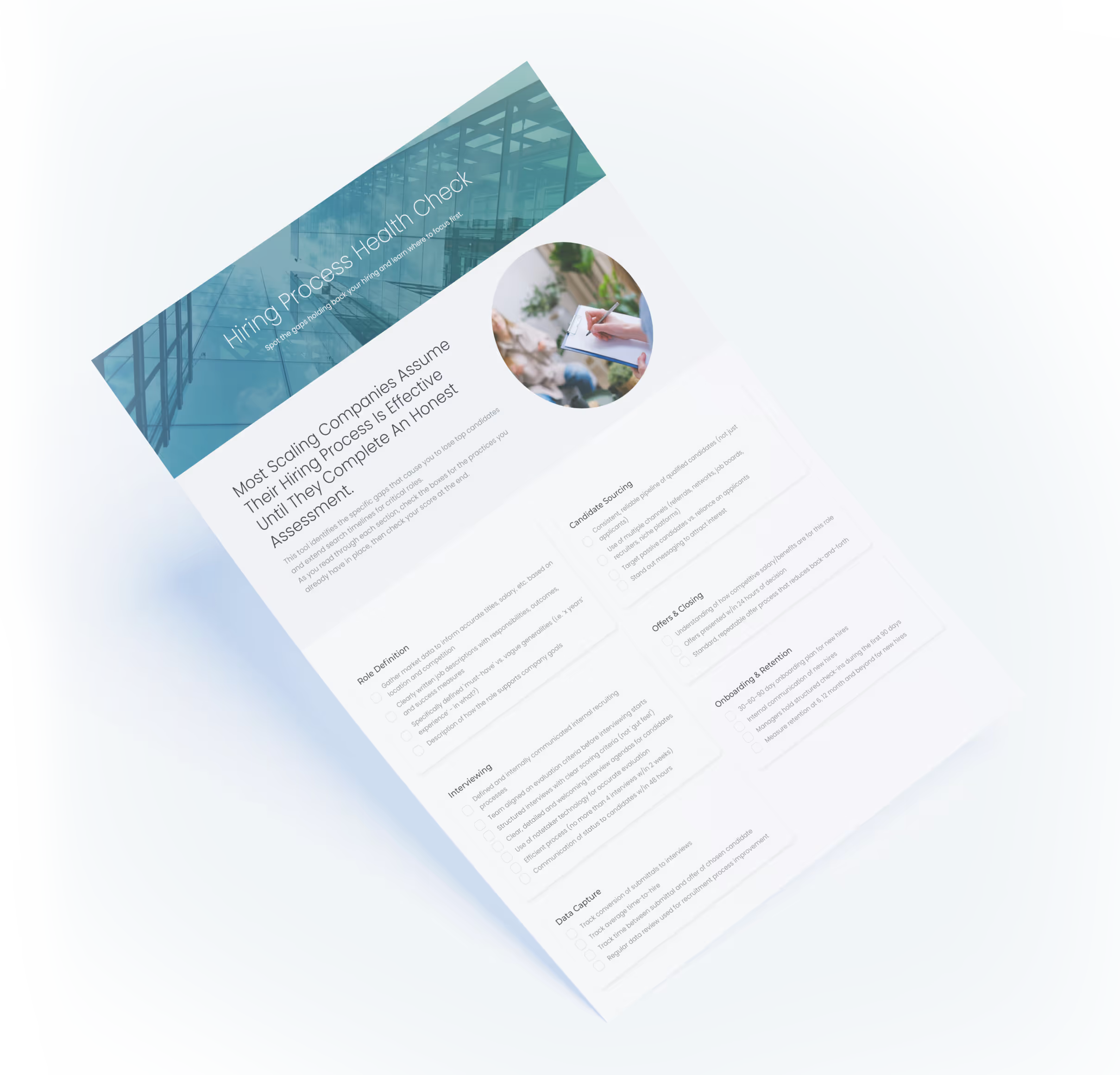5 Reasons a Recruiter Might Pass Over Your LinkedIn Profile
.jpg)
LinkedIn is an important platform for business professionals to network and promote themselves and an extremely powerful tool for job seekers. It's a great way to connect with industry professionals, learn about new job openings, and network with potential employers. It’s possible however that your profile is actually turning recruiters off. Here are five common mistakes that job seekers make on their LinkedIn profiles - and how to fix them.
1. Your picture makes you seem chancy.
According to The Muse recruiters spend almost a fifth of their time looking at the photo when reviewing LinkedIn profiles, so one thing you definitely want to get right is your LinkedIn photo. I’ve seen people who resemble international weapons traders, professional fisherman and the more common, career barfly. If that reflects the type of job you’re going for then more power to you, but more than likely it’s a big turnoff. Use a professional looking headshot whether it’s taken by a friend or professional but please, no selfies. Then check out photofeeler for a rating of your picture. Thanks @themuse, that was fun.
2. Your generic content makes you seem lazy or well, generic.
The content in your profile is an opportunity to tell recruiters more about your specific skills and experience—so don't waste it by copying and pasting some generic information. Instead, use it to sell yourself and tell recruiters why they should pick you over someone else. Use this space to highlight your most impressive accomplishments. Avoid using generic terms like "hard worker" or "results-oriented individual." Instead, use keywords that describe what you do and what kind of role you're looking for. For example: "Marketing Manager with 10 Years of Experience in the Consumer Goods Industry.". Include information about your past jobs, internships, projects, etc. Recruiters look for information about your work history to see whether you have the relevant experience for the jobs they're trying to fill. Bottom line: be specific.
And for goodness sake, check it for typos! If I had a dollar for every time I see a ‘Manger’…
3. You’re not actively engaged.
Stay active: add connections, post, like. Active members of LinkedIn act as any other engaged type of community participant. They also get more attention and interest. Here’s your chance to show your expertise, passion for your industry and all-around great personality. It can also help increase your profile's visibility, which could lead more opportunities for networking. How will people know how awesome you are if you don’t show them?!
4. You don’t seem to know many other professionals
A cousin of not being actively engaged is the profile with very few connections. Unless you’re just getting started on LinkedIn you should have amassed at least 50. At the least you don’t want to be mistaken for a bot (a fake profile created by an automated software program in order to mine the data of real people on LinkedIn). Being that LinkedIn is the world’s largest professional online community, you should be able to grow your network quickly. A friendly message along with your connection request is a great way to do so. If you want to be successful, it's important that your profile reflects one who spends time engaging others on their network and providing value through shares or comments.
5. You’re full of yourself
While LI is a place to promote your professional self (and by all means show your success), it’s not a place to crown yourself a Guru, Ninja, Master of…, etc. These kinds of titles are not only not going to be a turnoff for most people, but you may not even show up on a search. No one is looking for a self-appointed Guru, trust me.
A strong LinkedIn profile can be a powerful tool in your job search arsenal - but only if it's done right. By avoiding these five common mistakes, you can make sure that your profile is one that recruiters will actually want to read - and that could be the difference between landing your dream job or getting passed over entirely.
Get Your FREE Hiring Process Health Checklist

